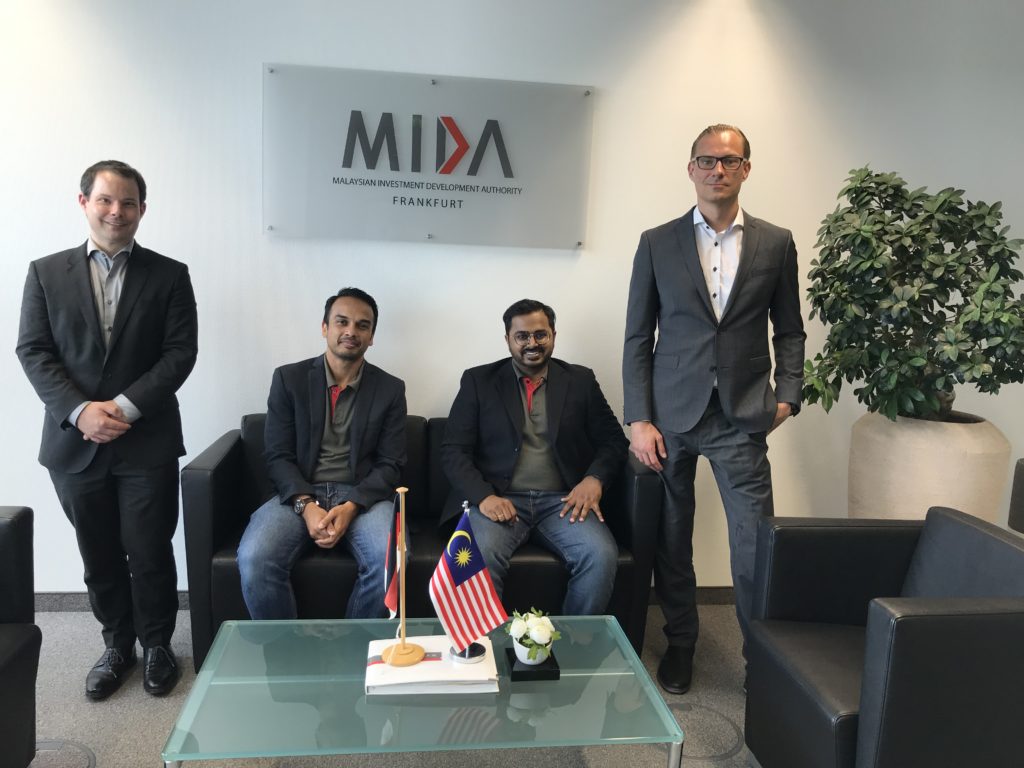
By Manik Mehta
FRANKFURT, June 30 – As Western companies scramble to search for potential alternative sites to China in other parts of Asia, Malaysia has been positioning itself to provide manufacturing and other services in a
number of sectors, particularly in the hi-tech segment, with electric and electronics – semi-
conductors, to be precise – as its forte.
Playing the electric and electronic card will also highlight Malaysia’s strength, manifested in its
well-developed infrastructure for manufacturing semiconductors which can attract German and
European companies which are keen to diversify their source of procurement in Asia and which
recognize that it would be myopic to rely on a single country as it could prove to be detrimental
to their long-term interest, particularly in the event of any adverse political or any other
developments.
The Frankfurt office of the Malaysian Investment Development Authority (MIDA) is trying to
penetrate into the corporate sector of its assigned jurisdiction comprising of Germany, Belgium,
Luxembourg and Netherlands.
“Based on our objectives, we are moving into the hi-tech sector … we are strong in the
manufacture of electric and electronics notably semi-conductors and the like. Most of the
companies in Germany are keen to find out more about the eco-system … the big German
multinationals want to know more about the eco-system,” explained Asrulnizam Andrus, the
regional director of the Frankfurt based MIDA office which, besides some parts of Germany,
also looks after the Benelux region as its core jurisdiction.
Asrulnizam, who took over as director of the Frankfurt office in January 2022, has been
promoting Malaysia as a viable investment site, highlighting the fact that it offers not only a rich
raw-material base but also skilled English-speaking manpower, coupled with its strategic
location in the midst of the ASEAN region facilitating distribution not only within the Southeast
Asian region but also transportation to other parts of the world.
The MIDA director said that Mercedes Benz and Porsche, Germany’s leading car manufacturers,
were satisfied with Malaysia’s eco-system; be added that both car manufacturers, whose cars
have become classic brand names and are recognizable anywhere in the world, have found that
Malaysia has a well-developed infrastructure backed by an English-speaking workforce and a
thriving business culture.
Though manpower shortage is, meanwhile, also affecting a number of Asian countries,
including Malaysia, Asrulnizam said that one can “get people by making the right offer and also
providing growth opportunities to the workers”. “After all, we are not trying to sell Malaysia as
a minimum wage nation,” he explained.
One major attraction for foreign investors is the widespread use of digital tools and automation
in Malaysia. Malaysia, he pointed out, also offered “readiness assessment”: the readiness
assessment process involves official measurement of the preparedness of an organization to
undergo a major change or take on a significant new project. However, this need not entail
plunging into a big change or project without knowing if one’s company or organization has the
resources to accomplish it effectively.
In the readiness assessment phase, one determines if one’s organization is ready to make the
change from paper records to an electronic record system or to upgrade the current one.
The MIDA office does not shy away from pointing out that other investing companies such as
Intel, Infineon, Osram and others are doing well in Malaysia.
Pointing out that other companies have achieved success, can arouse the interest of other potential investors in Malaysia.
“Pointing to the success stories of other companies already operating in Malaysia also arouses
the interest of other investing companies or those considering investing in Malaysia as a
manufacturing site with a well-established distribution network.
Meanwhile, semi-conductor circles in Europe and North America are aware that Malaysia is the
world’s third largest chip manufacturer after Taiwan and China. While Vietnam is equally an
interesting production site, investors often feel that that country does not have clear-cut
directions. Vietnam is still viewed as a “cheap labour site”.
Malaysia, according to Azrulnizam, costs a third of the prices paid by companies to produce in Europe. Also, because it was a neutral country, Malaysia was not affected by the Russia/Ukraine war. The supply chain disruptions, if any, occurred in Malaysia only during the pandemic.
Another attractive attribute Malaysia has is its facilities for research and development. Indeed,
many companies have chosen Malaysia specifically for its R & D and training facilities, according
to the MIDA director. The country, which is already a 4.0 industrial hub, offers industrial
versatility and can “absorb any kind of business”.
–WE